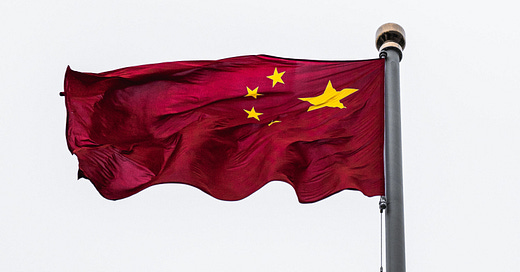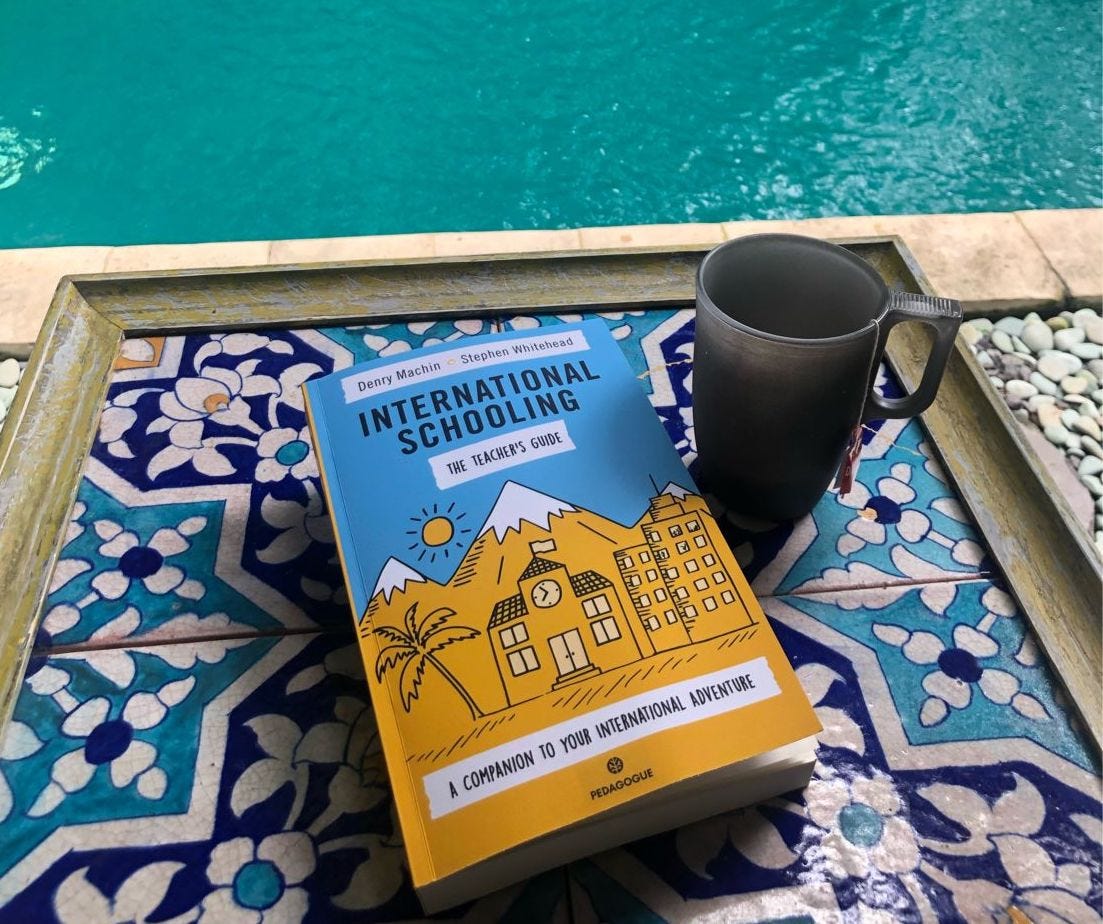Words: Jane Doe
What are UK public schools exporting and what are parents buying?
In June 2020 Sara Soma [i] launched the ‘Everyone’s Invited’ site on which more than 10,000 current and former students shared their experiences of sexual harassment in UK schools, including prestigious public schools (private schools).[ii]
Many of the public schools in the UK (public school is a private paid school with high tuition fees) were set up as boys’ schools and then became co-educational only much later. However, in many of these schools, the patriarchal systems of a ‘Master’ (often, perhaps even usually, male) and the internal old-school hierarchies remains.
Even a cursory glance at the ‘Everyone’s Invited’ website suggests that this patriarchy, and the resulting misogyny, is deeply embedded in the culture, of public schools
All the more so, and relevant to this article, these same elite UK public schools are opening branches globally (notably, though by no means exclusively, in China), promising parents and students a perfect ‘Harry Potter dream world’ following which they all go to Oxbridge.
Yet, is the UK actually exporting a misogynistic culture of sexual abuse, racism, classism, and colonialist mindsets, with limited oversight, poor quality, and promotional rhetoric aside, weak values?
A Brief History of International Schools in China
Over the last fifteen years there has been a rapidly growing market for private education in China; with schools catering for Chinese nationals (often bilingual schools) co-existing with international schools for foreign students. Many wealthy Chinese parents are investing heavily in their children’s education, taking them out of the Chinese public system in favour of UK private schools, with the belief that these will magically produce an educational experience via which their children will graduate to top-ranked UK universities.
Many of these schools have stunningly built facilities, enviable even by the standards of their namesakes.
However, over the last year or so there has been a significant shift in global geo-politics – and, specifically, greater control by the Chinese government over what is taught in its schools. Many UK private schools in China now have to offer Chinese public-school content. All schools educating Chinese nationals through Grades 1-9 are under increased policy control; they are prohibited from using their own textbooks, instead being required to use government textbooks - limiting schools’ ability to offer a UK or international curriculum.[iii]
In other words, despite what parents may have been promised in brochures, they have to follow the same curriculum and deliver the same content as Chinese state-managed public schools.
If you are reading this from your comfy armchair in a cosy UK public school common room, this perhaps sounds like a problem.
But, is it?
Perhaps not, depending on which view you take.
Firstly, many of the famously branded schools operating in China are owned and managed by Chinese companies[iv]: including Bournemouth Collegiate College, St Michael’s School, Bedstone College, Ipswich High School and Riddlesworth Hall Preparatory School.[v] The boundaries between East and West are narrow indeed.
Operating on a franchise model, or on management services contracts, these companies run, manage and operate the schools within rules, regulations and brand guidelines set by the franchisor/licensee (the UK public school) – paying a fee for the privilege.
I suspect that few of these owners care about the new Chinese regulations, so long as roll isn’t affected of course.
On the other side, some UK schools retain more oversight re how the China-based branches are run, with Governors from the UK school on the board. However, others do not; some have little say in how their overseas outposts are run, how their years of tradition are being sold, and how their culture is being manipulated in the Chinese versions of their school.
As many international school teachers have experienced, and as Dr Denry Machin intimates here, many of the British private schools in China, aren’t really the real thing.
Perhaps then the UK schools don’t know, or don’t care, what is going on in China.
Profit First, Teacher Last?
Further, in China, foreign teachers are very much the responsibility of the school, not the State.
The school is held accountable for their employees’ actions both inside the school and outside. The school is also in control of visa and work permits (the latter being rarely given to the teacher, though in truth they should be in the teacher’s hands, not the school’s). This means that schools have a lot of control over their foreign teachers and, in turn, teachers few ways of holding schools to account over unfair or discriminatory practices.
Whilst there are employment rights, they aren’t the same as in the UK. The language barrier is also an issue; teachers can find it very difficult to access support if they feel unfairly treated - not to mention the implications complaining would have on their future employment.
As a result, school management can behave in discriminatory and unfair ways with little consequence.
Search Associates, a well-established international school recruitment agency, was recently embarrassed by potential teachers pointing out discriminatory requests on job adverts: ‘native English speakers from x country only’, for example. Admittedly, these rules relate to visas and work permits and not only to school preferences, but the attention has at least resulted in a change in practices and increased transparency from Search Associates, which is excellent step in the right direction[vi].
However, what is being done to ensure teachers are not hired to work in schools that don’t protect women, people of colour, or have other discriminatory practices? Search Associates (and the recruitment industry generally) rely on schools for revenue, and there is increasing competition for teachers, especially in the online Covid world. What bite, if any, do recruitment agencies really have in improving standards in international schools? The tail cannot wag the dog.
Grades First, Teacher Last (again)?
Moreover, China, like the UK, has a results-orientated educational focus. Exam grades matter.
This means that, culturally, Chinese people are also results focused (as based on Geert Hofstede’s research [vii]). Parents are attracted to schools which offer results, not necessarily the process of getting there, nor a love of the learning itself.
The outcome is an industry culture of ‘only the fittest survive’ and ‘suffering’ builds ‘character’. In turn, so long as results are good and roll healthy, school leaders are free to do as they please, and as the market requires, with limited oversight (at least from the UK).
Unions for foreign teachers don’t exist (there are Chinese unions that support Chinese workers), meaning that sexism, racism and other forms of discrimination can be rife for foreign staff, permeating through every decision.
Is this the world we want students to grow up in? Is this the world parents bought into?
For many teachers, it is frustrating that students and parents (and teachers themselves) are buying into these schools with an expectation of quality and of Western values. Yet, with potentially little connection to the UK school and minimal oversight, these values may not be maintained, and the promise of quality not met.
There may be values promoted via a glossy school website, but do they embrace anti-discrimination based on gender, sex, disability, skin colour, race, pregnancy, and religion? How are staff employed in these schools protected? What policies and standards are in place to ensure these teachers are experiencing the same workplace protections that they would receive in the UK?
And, what curriculum is actually being delivered? The one promised by the name or the one required by the Chinese government?
Surely transparency is a better option?
Maybe.
But then markets, profit and commerce rarely operate transparently. Even if education should.
A silver lining perhaps is that greater Chinese oversight of what goes on in these schools has slowed growth, possibly even stalled it. Schools are cancelling or delaying opening and deciding against the recently popular bilingual model (which faces greater regulation than international schools educating foreign rather than Chinese children). Westminster school, for example, and perhaps wisely, has now withdrawn from opening in China[viii]; the Hong Kong Melodious Education Technology Group (HKMETG)[ix] has also decided against opening schools in China, despite already having a site and well-advanced plans for a September 2021 opening.
Bringing together UK public schooling, with an international curriculum, and a Chinese state curriculum, within a high-stakes results-orientated culture is an experiment, a very new experiment.
For some schools this experiment only started in September 2021. This is not a tried and tested model. This is not the 200+ years of experience of a UK elite private school, where staff are there for the long run (part of the furniture) and are able to nurture students’ year-on-year as they grow through the school. This is a highly risky experiment where the cultural repercussions for the UK are huge.
Having seen and experienced first-hand the ‘results are everything’ toxic male culture that these schools can produce, this is worrying.
Do potential students, parents and staff truly understand that they won’t get the same thing as the UK school?
To what extent do they know that it is different?
Do the UK schools know what is really going on in their outposts? Do they really care about their values. Or has student-first been replaced by profit-first?
Are these schools confident that they are doing enough to ensure that the rape culture documented by Sara Soma in her ‘Everyone’s Invited’ site, is being wiped out?
Quality schools take years to build, not day-by-day knee jerk reactions to policy changes attached to the (mis)selling of the Harry Potter promise.
If the ‘Everyone’s Invited’ movement has spurred UK public schools to look inwards, will they also cast that critical gaze outwards to their outposts?
*Jane Doe is a pseudonym. The author is an experienced international school educator, based in Asia.
INTERESTED IN INTERNATIONAL SCHOOLING?
The Teacher’s Guide is getting around!
Seen here in Bali, enjoying its ‘dream life’ by the readers pool. Yes, you too can have a house with a pool! Grab a copy to take on your own adventure or listen to a short sample here (4 mins).
references
[i] https://www.vogue.co.uk/miss-vogue/article/soma-sara-everyones-invited accessed 28th December 2021
[ii] https://www.standard.co.uk/news/uk/former-private-school-girl-dulwich-college-abuse-b926699.html accessed 28th December 2021
[iii] https://www.ft.com/content/8bba46b4-16ac-48c0-9a50-c7f10e2d16cb accessed 28th December 2021
[iv] https://www.rfa.org/english/news/china/schools-02252021125933.html accessed 28th December 2021
[v] ibid
[vi] https://www.searchassociates.com/news-events/diversity-equity-and-inclusion-our-guiding-statement/ accessed 28th December 2021
[vii]https://en.wikipedia.org/wiki/Hofstede%27s_cultural_dimensions_theory#:~:text=Hofstede's%20cultural%20dimensions%20theory%20is,structure%20derived%20from%20factor%20analysis.
[viii] https://inews.co.uk/news/westminster-school-china-sites-chengdu-scrapped-amid-concerns-communist-curriculum-1282000 accessed 28th December 2021
[ix] ibid
*Jane Doe is a pseudonym. The author is an experienced international school educator, based in Asia.







